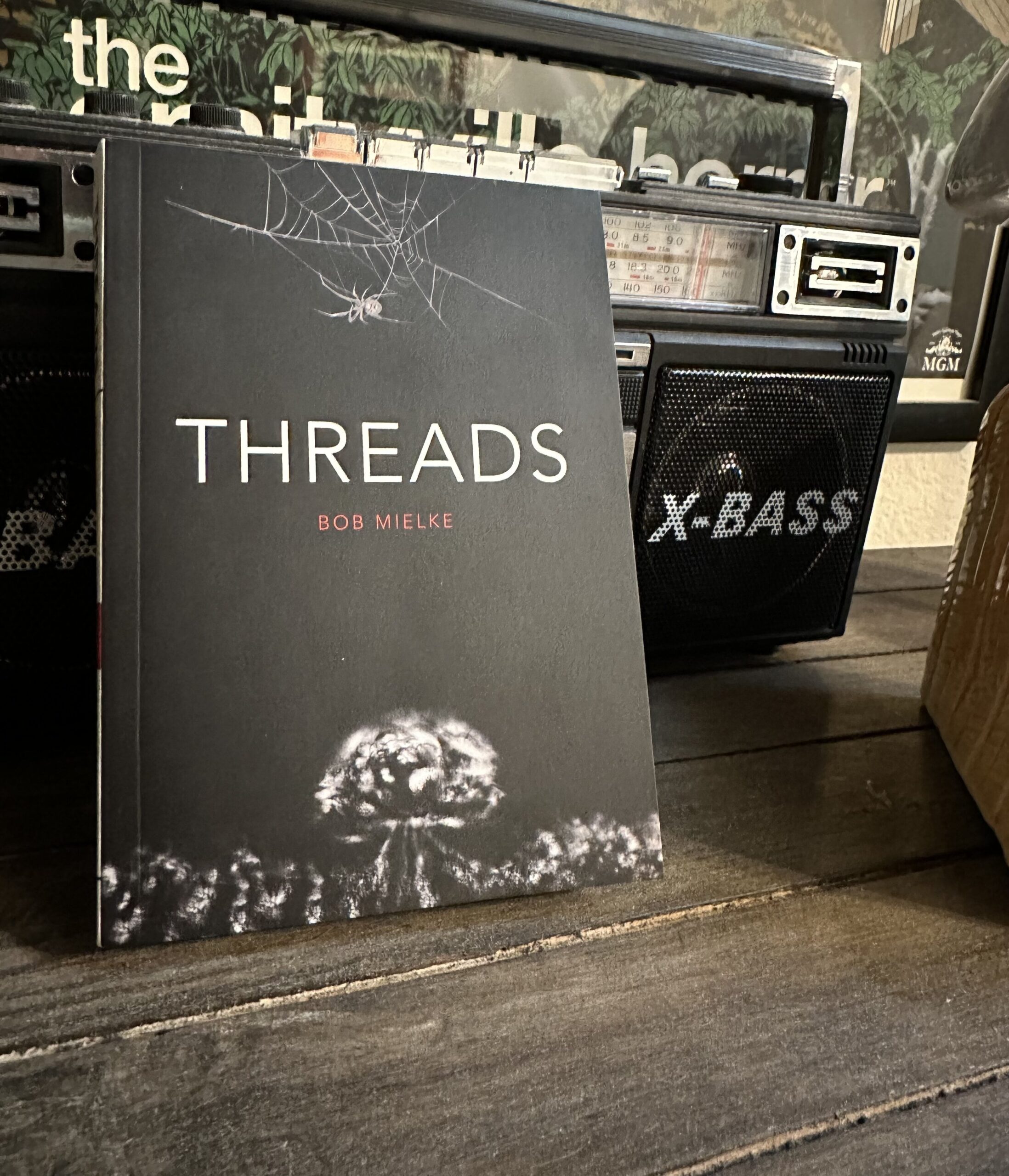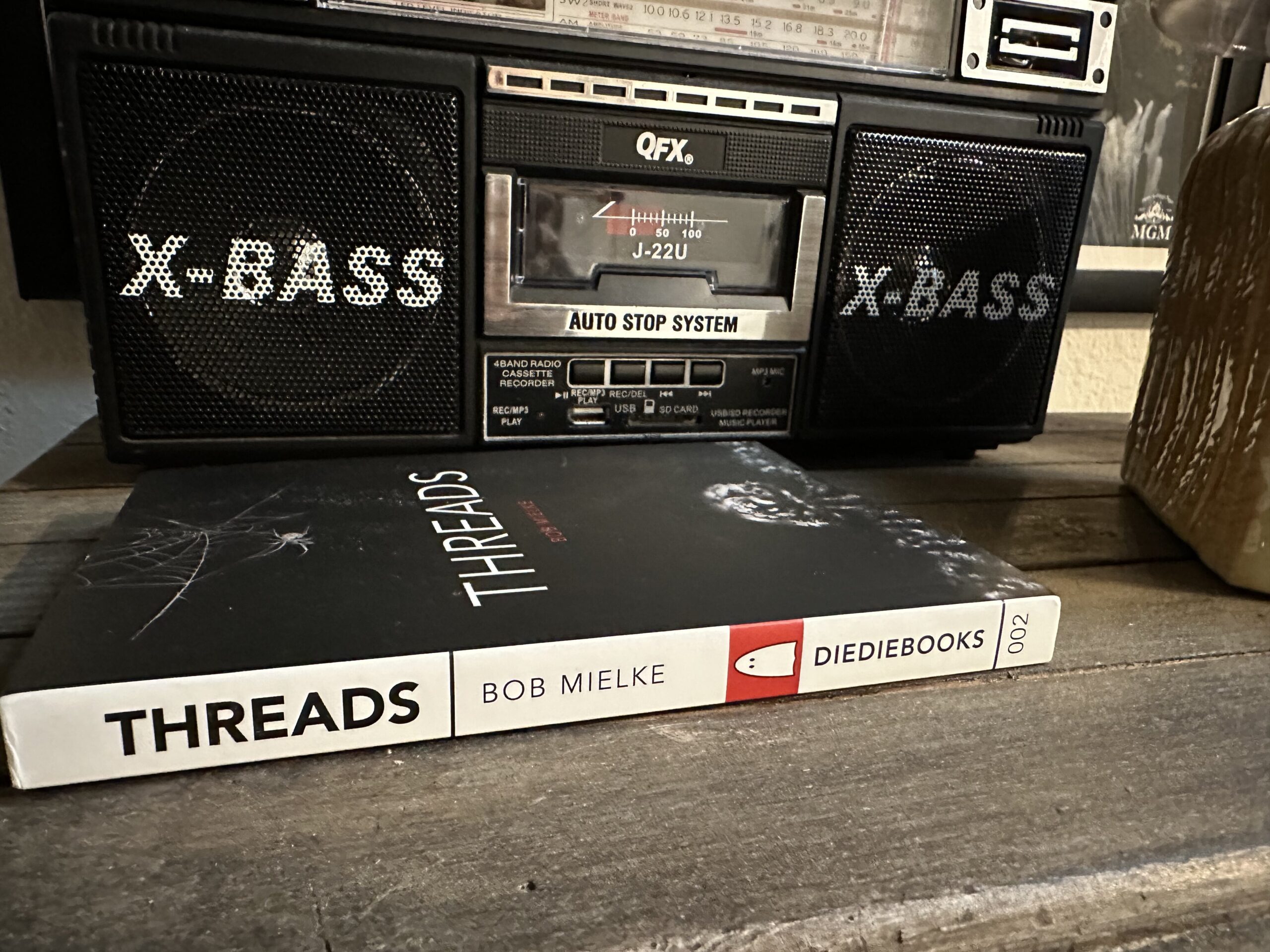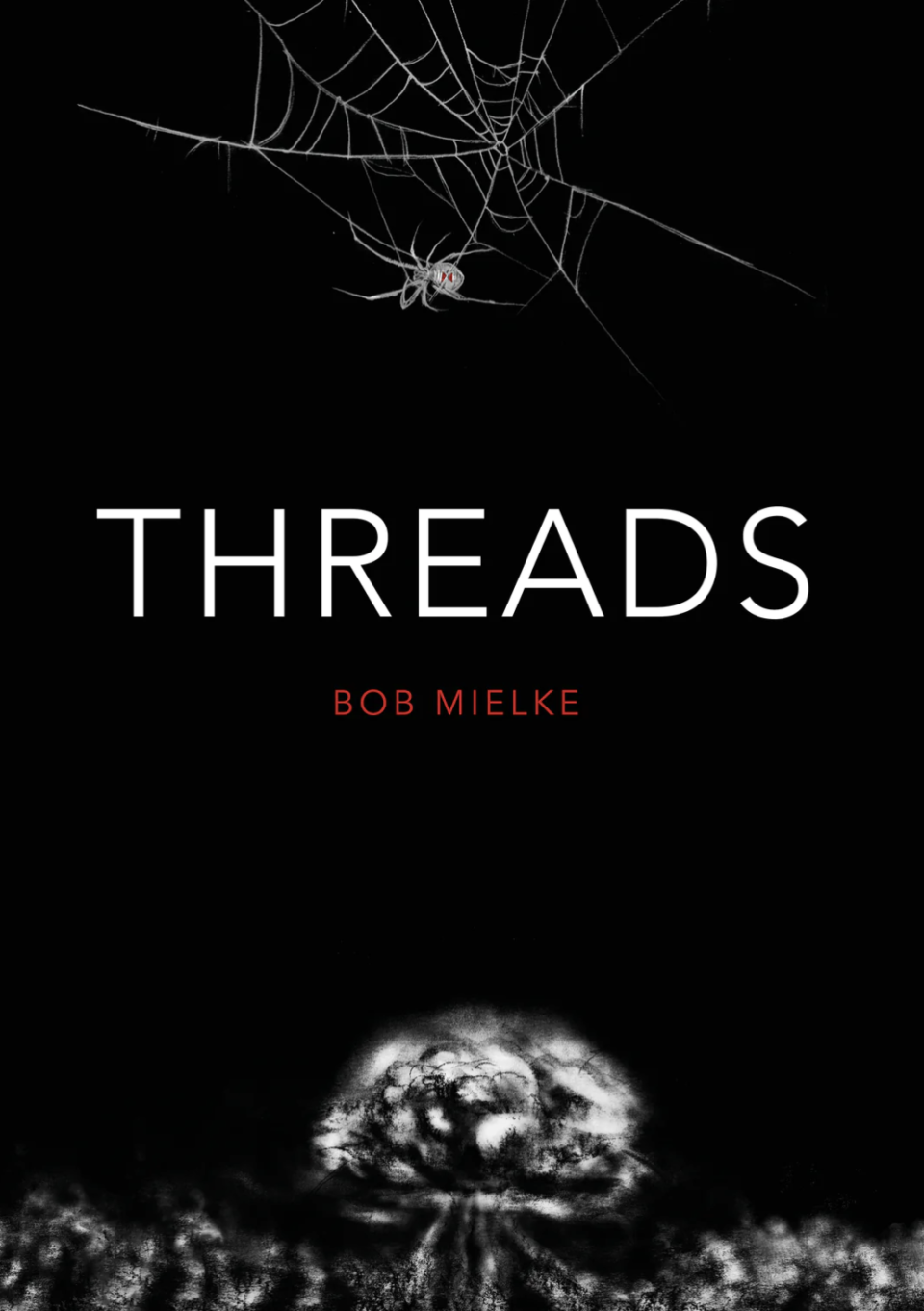‘Threads’ is a Must-Read From New Press DieDieBooks

If Mick Jackson’s Threads, the 1984 BBC nuclear war drama, was an augur of a world on the brink, then Bob Mielke’s Threads, a book-length essay on the titular film, is an augur of DieDieBooks’ imminent success. The small press’ first release in a series of essays on horror films (texts on Poltergeist and The Wolf Man are pending release among others) is a marvel. Equal parts academic and accessible, Mielke’s urgent, poignant contextualization of Threads as a horror film is a must-read, not just for fans of Jackson’s film, but for horror audiences everywhere.
Among the breadth of non-fiction horror texts available, the core metric for readers is likely whether the work has the capacity to render the familiar as new; whether one can crack the spine and cultivate fresh, enlightening insights into a text they know well. Nina Nesseth’s Nightmare Fuel: The Science of Horror Films, one such contemporary example, accomplished that laudable goal well. Mielke’s Threads, though considerably more singular, is no less successful. Politics, nuclear disarmament, popular culture, and the Golden Age of television filmmaking coalesce under Mielke’s guidance, repositioning a cult favorite as arguably one of the most important horror films ever made.

And, in truth, that’s Threads’ biggest conclusion. Mielke divides his novel into five distinct chapters, running the gamut from the historical context, Threads’ links to Nicholas Meyers’ The Day After, Hollywood’s nuclear war drama released on ABC the year before, to the swath of adjacent popular culture at the time (e.g. Kate Bush. As noted by Mielke, these chapters work independently or synecdochically as part of the whole. Yet, as Mielke notes of the mutability of the horror genre, the core contention is “in the rediscovery of apocalyptic nuclear war films as horror films.”
Threads, for most contemporary audiences not around during its television premiere, was likely first discovered on the premier horror streamer Shudder, where it remains available as of this writing. Yet, among the many best-of lists proliferating online, Threads rarely if ever registers. Synopsized as a “shocking” and “shattering” made-for-television movie, Threads relegates itself to docudrama status. Broadly, the film follows the fallout from a nuclear attack in Sheffield, England, exploring the way society’s fabric unravels as the world regresses to medieval practices in a perennial nuclear winter.
Ostensibly a PSA—and Mielke’s sterling historical context convincingly makes the case that Threads works as both horror and “cautionary” filmic discourse—Threads is, foremost, a horror movie, and an enduringly terrifying one at that. Replete with graphic imagery, peripheral surrealism, and a chilly, taciturn approach to its many grim happenings, Threads lingers in a way few horror films manage. Yet, Mielke’s writing—frequently very funny—makes the dour illuminating, keenly outlining Threads role in the horror canon while simultaneously expounding on the nature of horror writ large.
While Threads might be as “totally 80s as Duran Duran or vintage handheld video games,” it also adroitly induces trauma and terror—the existential, destabilizing kind—more effectively than most horror films, including the narratively inferior The Day After. In recounting the development, release, and reception of Threads, intertextuality expands, with Mielke reconciling Threads with the genre at large while asking audiences what a horror film ought to do. Are they merely cathartic, or should they endeavor to do more? More broadly, are horror films as history even capable of inciting the kind of socio-political change genre scholars so desperately hope they can?
Mielke convincingly answers that, yes, horror is politics and politics are horror, and while much of the analysis is limited to the time of its release, there are nascent threads linking Jackson’s films to the horrors of today. While the threat of nuclear annihilation now is a Chimera of different actors with different goals, the historical, nay, biological, template remains much the same. Threads might contend humanity is doomed—and its horrifying final image of Victoria O’Keefe’s Jane giving birth certainly punctuates that idea—though Mielke is more hopeful. It’s in the ruin that change takes hold. Only by diving deep into the dark can the scales reset.
Bob Mielke’s Threads is a must-read for genre fans, whether they have any familiarity with the source material or not (though it’s likely a good idea to screen it beforehand). What Mielke accomplishes here is nothing short of remarkable. Lucidly conceived, fastidiously researched, and accessibly written, this is horror as education; horror as illumination. As a springboard for DieDieBooks, it’s as sensational a start as any.

The physical book itself is understated in a way poised to look nice on any bookshelf. The front cover features the title in white against a black background with a burgeoning atomic plume on the bottom. The spine especially mandates collecting. Numbered (Threads is 002) with the DieDieBooks name and a cute little ghost, it’s designed to feature alongside future releases for a curated shelf of horror must-reads. Handsomely crafted with crisp font and sturdy pages on the interior, the easy recommendation is to forgo a digital copy and purchase a physical book.
Threads is now available in paperback and ebook formats through the DieDieBooks website, diediebooks.com.

Categorized: Reviews
